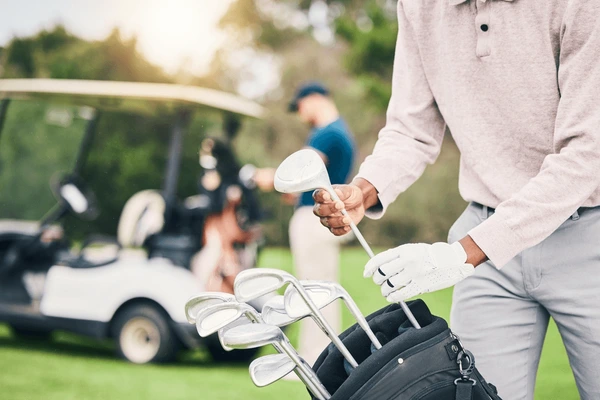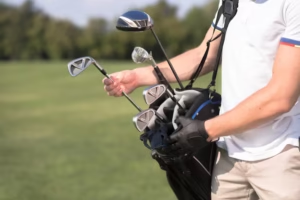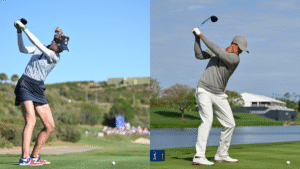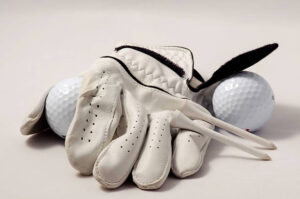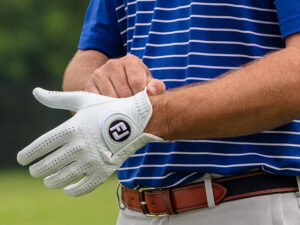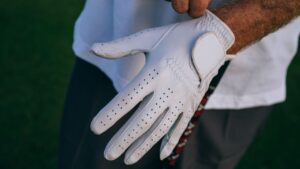Every golfer eventually asks the same question: “Should I get fitted for golf clubs?” For some, it feels like a luxury reserved for advanced players. For others, it’s a mystery—what does it mean to get fitted for golf clubs, and is it really worth the cost?
Here’s the truth: golf club fitting isn’t just for professionals. It’s a process designed to match your clubs to your swing, your body, and your game. Imagine trying to run a marathon in shoes that are too tight or too loose—you could still run, but not comfortably, and certainly not at your best. Clubs are no different.
In this article, we’ll explain what a golf club fitting is, break down the cost to get fitted for golf clubs, discuss when to get fitted for golf clubs, and answer whether beginners should consider a fitting. By the end, you’ll know if a fitting is the right step for your game.
What Is a Golf Club Fitting?
So, what does it mean to get fitted for golf clubs? At its core, a fitting is a personalized process where a professional analyzes your swing and matches you with the right equipment.
During a fitting, a club fitter looks at:
- Length of the club: Based on your height, arm length, and posture.
- Lie angle: How the club sits at address and impact, affecting direction.
- Shaft flex and weight: Matched to your swing speed for distance and accuracy.
- Grip size: For comfort and control.
- Clubhead design: To suit your skill level and ball flight preference.
Launch monitors, video analysis, and even motion sensors are often used to gather data. The goal? To create a set of clubs that feels like an extension of your body.
When Should You Get Fitted for Golf Clubs?
This is one of the most common questions: “When should I get fitted for golf clubs?”
The answer depends on where you are in your golfing journey:
- Beginners: If you’re just starting and still figuring out your swing, you might not need a full fitting right away. But even a basic fitting for length, grip size, and shaft flex can make learning easier.
- Intermediate Golfers: Once you’re playing regularly and know your tendencies, a fitting becomes very valuable. It can correct bad habits caused by ill-suited clubs.
- Advanced Players: At this level, even small adjustments in lie angle or shaft weight can make a noticeable difference in consistency and scoring.
A good rule of thumb: get fitted once you’re committed to playing the game consistently—whether that’s as a beginner eager to improve or a seasoned golfer chasing lower scores.
Should a Beginner Get Fitted for Golf Clubs?
Another common concern is, “Should I get fitted for golf clubs as a beginner?” The short answer: yes, but start simple.
Here’s why:
- Clubs that are too long, heavy, or stiff can make learning harder.
- A basic fitting ensures your equipment matches your body size and swing speed.
- It prevents beginners from developing bad habits to “compensate” for poorly matched clubs.
That said, beginners don’t always need a full premium fitting right away. Instead, focus on the essentials: length, shaft flex, and grip size. As your swing develops, you can always get a more detailed fitting.
Is It Worth Getting Fitted for Golf Clubs?
This is where golfers often hesitate—is it worth getting fitted for golf clubs?
The answer depends on your goals. If you only play a couple of casual rounds a year, you may not see a big return on investment. But if you play regularly, a fitting can:
- Add distance by matching shaft flex to swing speed.
- Improve accuracy with proper lie angles.
- Increase comfort and reduce fatigue with the right grip size and club weight.
- Build confidence knowing your clubs fit you—not the other way around.
Think of it like tailoring a suit. You can wear something off the rack, but a custom fit makes you look and feel better.
Cost to Get Fitted for Golf Clubs
One concern golfers have is the cost to get fitted for golf clubs.
Here’s a breakdown in the U.S.:
- Basic Fitting (just irons or driver): $50–$100.
- Full Bag Fitting: $200–$400.
- Premium Fitting with Advanced Tech: $500+.
Some retailers apply the fitting fee toward the purchase of clubs if you buy through them. While the upfront cost may seem steep, it often saves money long-term by preventing you from buying clubs that don’t suit you.
Golf Club Fitting for Beginners vs Experienced Players
The process of golf club fitting for beginners looks slightly different than for advanced players.
- Beginners: Focus on the basics—length, grip size, and shaft flex. Less emphasis on fine-tuning because the swing is still developing.
- Intermediate/Advanced Players: More detailed adjustments, including lie angle, shaft weight, and clubhead design, all tailored to shot tendencies.
Even if you’re new, a fitting helps ensure you’re starting with tools that won’t hold you back.
Common Myths About Golf Club Fitting
- “It’s only for pros.” Wrong. Fittings are designed for all skill levels. In fact, beginners often benefit the most.
- “It’s too expensive.” While premium fittings can be costly, many affordable options exist.
- “I’ll get fitted once I’m better.” Using poorly matched clubs now may prevent you from ever getting better.
Conclusion
So, should I get fitted for golf clubs? The answer is yes—especially if you’re committed to improving your game.
A fitting isn’t just about buying expensive equipment. It’s about making sure your clubs fit your swing, your body, and your goals. Whether you’re a beginner who needs basic adjustments or an experienced golfer chasing precision, a fitting can transform your confidence and performance.
Like running in the right pair of shoes, the right clubs won’t make you perfect—but they’ll give you the best possible chance to succeed.

